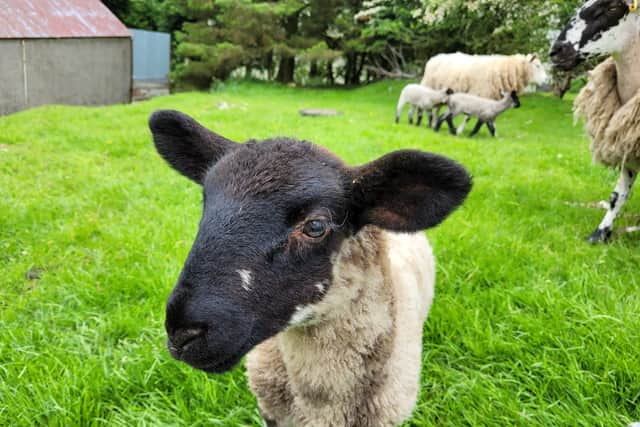What is being done to maintain a Maedi Visna free status for Northern Ireland?
and live on Freeview channel 276
The Department of Agriculture, Environment and Rural Affairs is considering the introduction of a Northern Ireland accreditation scheme, similar to that in operation in Great Britain, or a possible joint accreditation scheme with the Republic of Ireland.
Agriculture Minister, Edwin Poots, said his department officials have, for many years, operated a surveillance programme, which tests any sheep and goats moved into Northern Ireland from outside the island of Ireland, and a small proportion of the indigenous Northern Ireland flock, as part of the annual sheep and goat survey.
Advertisement
Advertisement
Responding to a written assembly question, tabled by East Londonderry MLA Claire Sugden, Mr Poots outlined how he is supporting farmers following the detection of Maedi Visna in Northern Ireland.


He said his department has been taking “all possible actions” to support local flock keepers and protect the sheep trade from Northern Ireland to Great Britain.
In order to assure the current Maedi Visna free status, DAERA is carrying out a veterinary investigation with the intention of identifying the extent of any spread, and then controlling and “stamping out” the disease.
Elaborating, the minister stated: “As such, officials are implementing a rigorous approach to trace, test and removal of all of the infected animals in as timely a manner as possible, in an attempt to eradicate the disease as quickly as possible.
Advertisement
Advertisement
“Control of the movement of infected animals is a key element of any disease control programme, but I would want to emphasise that restrictions on sheep movements are only applied where disease is confirmed or suspected, and where necessary to mitigate against risk of further onward spread from the affected flock.”
Financial compensation is also payable to affected flock keepers, Mr Poots revealed, if the department considers it necessary to slaughter any sheep for disease control purposes.
He continued: “Positive animals are paid at 50 per cent of their market value up to the statutorily permissible limits, while negative in contact animals are paid at 100 per cent market value.
“My officials are actively working with those keepers affected by movement restrictions on their flocks, to ensure that all necessary testing is done as promptly as possible, to allow the restrictions to be lifted at the earliest opportunity.
Advertisement
Advertisement
“However, this is a difficult exercise, and one uncertain of success, given the invidious nature of the disease, its very long incubation period and its relatively non-specific symptoms.”
Commenting on the possible introduction of an accreditation scheme in Northern Ireland, Mr Poots said officials are working in partnership with the Scottish Rural College, key stakeholders and colleague in the Republic of Ireland, to explore the possibility of developing and establishing a scheme which would be suitable and sustainable for flock keepers.
“While this is going on, my officials will continue to provide practical support and guidance to the local sheep industry,” he added.
“Officials have already met with key stakeholders, on a number of occasions, and will continue to do so, in order to keep them appraised of developments.
Advertisement
Advertisement
“A press release has recently been issued and the department has also updated its guidance on the DAERA webpages, advising industry to source stock responsibly and deploy good biosecurity practices on their farms to eliminate any risk of further disease spread,” the minister ended.